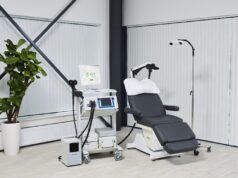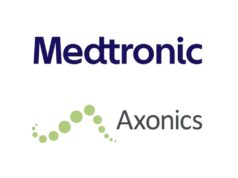
Motif Neurotech, a company developing minimally invasive bioelectronics for mental health conditions, has announced new research published to the preprint server Medrxiv that demonstrates the use of a millimetre-sized brain stimulator—the prototype Motif DOT microstimulator—in a human subject.
The study was a collaboration between researchers at Rice University, Baylor College of Medicine and University of Texas Health (UTHealth) Houston (all Houston, USA), and the procedure took place at Baylor St Luke’s Medical Center.
In intraoperative studies, the team showed that miniature, pea-sized implants could safely and effectively stimulate the human brain without contacting the brain surface. They further showed that the implants provided safe and effective brain stimulation in large animal studies lasting for more than 30 days.
“Motif’s minimally invasive neuromodulation device is designed to be implanted in a simple outpatient procedure,” said Motif co-founder Sameer Sheth (Baylor College of Medicine, Houston, USA). “This tiny device, which cannot be seen once implanted, provides at-home stimulation that engages brain networks known to treat depression. This is the same brain area activated by transcranial magnetic stimulation [TMS], which is proven to treat TRD [treatment-resistant depression] but requires frequent clinic visits and usually only provides temporary relief. This new, at home-based therapy has the potential to revolutionise the treatment options for patients with depression.”
According to Motif, traditional neuromodulation systems have limitations due to their reliance on implantable pulse generators with built-in batteries and wired leads, leading to various potential points of failure like lead fractures, migration, and battery failure. The current clinical literature also indicates that stimulation of the prefrontal cortex is effective for TRD without bringing the side-effects of antidepressant drugs. Existing brain stimulation treatments like TMS are expensive and challenging to access, with daily treatments required for six weeks and high rates of relapse following treatment, the company also claims.
Motif is developing a neuromodulation system consisting of a precisely targeted implant and wearable headset for use at home to deliver episodic neuromodulation—which, the company reiterates, has been shown to be effective in TRD.
“We have developed what we believe is the smallest implantable brain stimulator demonstrated in a human subject,” said Motif CEO and founder Jacob Robinson. “Our wireless, battery-free device will enable a minimally invasive neurostimulation solution to treat neuropsychiatric diseases such as TRD. With our technology, a short outpatient procedure will enable long-lasting therapy with very few side-effects compared to drugs. The growing trend of increasing efficacy and reduced invasiveness may soon make neuromodulation to treat mental health as common as pacemakers in cardiology.”









